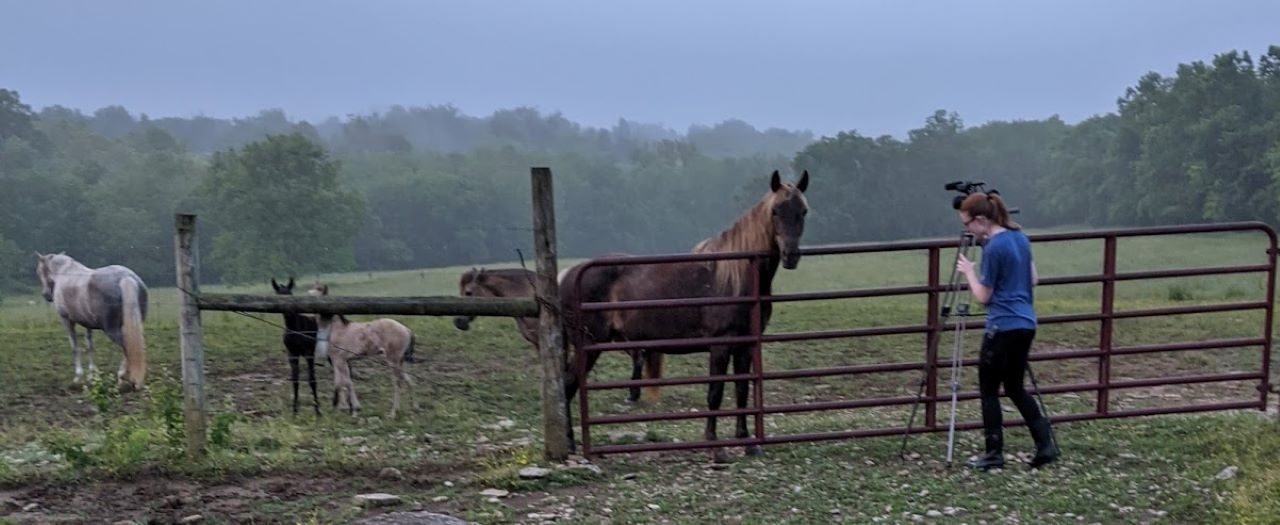While Kentucky is best known for the elegant and athletic Thoroughbred horse, a horse that has earned a select few a degree of fortune and fame, a lesser-known story surrounds the selectively-bred mountain horse. The mountain horse has earned a special place in the hearts of people in Appalachia. Known for its strength and stamina, the mountain horse helped a generation complete tasks such as plowing hillside terrains and delivering supplies through the most rugged and inaccessible parts of the mountains.
Eastern Kentucky University sociology professor Stephanie McSpirit first heard of the mountain horse during an after-class conversation with her students. Intrigued, she began conducting research on the horse and enlisted several colleagues to join her in collecting the stories and recording the history of this unique, relatively unknown breed.
She and Neil Kasiak from the EKU Oral History Center secured grants and support from the Kentucky Oral History Commission to collect the stories from more than 60 breeders. EKU broadcasting professor Chad Cogdill brought his skills to the table to film the interviews.
Ten years later, those recorded stories have been compiled into a 30-minute documentary entitled, “The Horse That Built Kentucky.” The documentary will premiere at EKU Thursday, February 17, 7 pm. in O’Donnell Auditorium, and air on Kentucky Educational Television (KET) beginning Sunday, February 20, 7:30 p.m.
“Our project has always had the end goal of bringing attention to the nice gait, smooth traveling, beautiful mountain horse,” McSpirit said.
McSpirit serves as the project director of the oral history project and the executive producer of the documentary. She acknowledges the participation of more than 40 students from the disciplines of sociology, animal studies and communication who have assisted with the film over the years.
Telling the history of Kentucky through the eyes of those who breed and use the mountain horse was important to McSpirit and her colleagues as they collected oral histories.
“The history of these mountain horses is an important part – a missing part – of Kentucky’s celebrated equine history,” she said. “Telling the story of these horses and the horsemen and women behind them is important to understanding the general history of Kentucky. These horses were bred to be ‘using horses’ and this working partnership between horse and human was essential to people’s survival.”
McSpirit plans to continue working to get the word out about these horses. After this month’s airing of the documentary, she and her EKU colleagues will distribute the film to national and international film festivals, promote the digital museum exhibit at mountainhorseproject.com, and work with brick-and-mortar museums to install exhibits.
“I was struck by one comment made by one of the breeders of these horses, who said: ‘These horses are one of the best products to come out of Kentucky,’” McSpirit said. “Personally, I would have to agree. I could tell story after story of my own mountain horse. That horse has been my trusted partner for 10 years now.”
